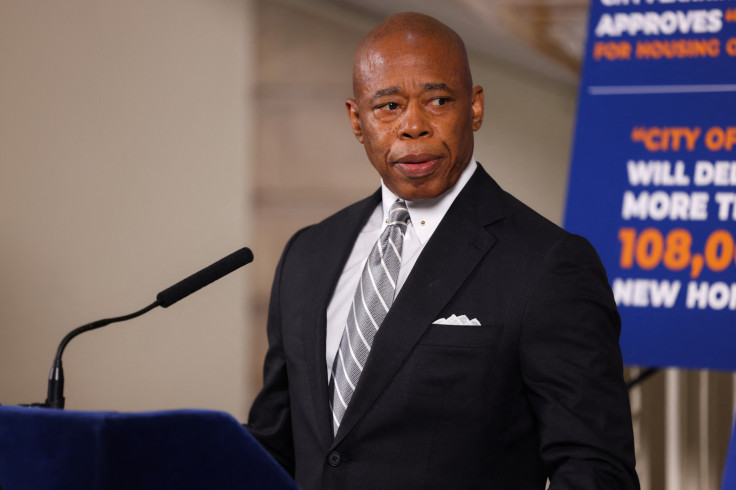
President-elect Donald Trump is set to carry the largest mass deportation operation in American history as soon as he steps into the White House. As cities brace for the sweeping impact of the new Trump administration, how will New York City, one of the immigrant safe havens throughout the Biden administration, be affected? Seemingly, it won't.
The prediction came from New York City Democratic Mayor Eric Adams, as he tried to reassure immigrants in the city that they would be safe.
"Mass deportation— that is not going to happen in New York City," Adams said.
Gov. Kathy Hochul, a Democrat, also tried to comfort anxious residents on Wednesday, saying she would "honor" the election results and try to work with the president-elect, but would fight back against efforts to curtail reproductive freedoms, expand gun rights and curb environmental regulations.
But despite the reassurance, it remains to be seen how the City will accommodate itself to a new Trump presidency.
An increasing number of voters backed Trump's agenda on Election Day, not just in Republican strongholds like Staten Island, The New York Times reported. Though Vice President Kamala Harris still won the deep-blue state comfortably, Trump received roughly 38% of the vote in Queens, one of the largest immigrant hubs in the world and the borough he grew up in, compared with 27% four years ago.
At the same time, Trump himself has emerged as an unexpected ally of Adams as the mayor deals with a plethora of legal woes related to corruption in his administration. The GOP leader has often compared his own legal battles in the city, where he was convicted a felon, and argued they have both been unfairly targeted by politically motivated prosecutors.
But regardless of their relationship, Adams' hopes to protect New York City from Trump's immigration plans may not come into fruition, Gothamist reports.
"At the end of the day, the federal government has the authority, the only authority, to enforce immigration laws," said Lina Newton, a Hunter College political science professor who has researched federal immigration policies. Long-standing Supreme Court precedent recognized Congress as having plenary power over immigration.
However, if the mass deportation plans are enacted, there are numerous constitutional and logistical barriers, including lack of local cooperation and budgetary restraints, that could hamper Trump's ability to implement his vision— and would certainly prevent him from doing so on "day one," as he has promised.
"The power of the president is different than his ability to execute that power," said Muzaffar Chishti, senior fellow and director of the Migration Policy Institute office at NYU School of Law.
Trump has promised to carry out mass deportations, potentially upending the lives of about 676,000 immigrant New Yorkers who lack citizenship or legal status, many of whom have lived and worked in the state for years. That plan would likely include Immigration and Customs Enforcement raids and arrests at individuals' homes and workplaces.
But legal challenges would likely follow any deportation plans, just as they did with Trump's "Muslim ban." Civil liberties limitations also apply to ICE officers looking to enter homes and workplaces, actions that can require warrants from immigration judges already facing long backlogs and yearslong dockets.
"We're going to double or triple down on education [including on immigrants' rights], so the community knows what their rights are," said Murad Awawdeh, president and CEO of the state New York Immigration Coalition, an advocacy group for immigrants.
© 2025 Latin Times. All rights reserved. Do not reproduce without permission.




